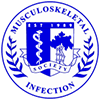Author(s): Parvizi Javad MD FRCS, Fereidoon M. Jaberi MD, Stephanie Barr BS, Lauren Khol BS, Jill Steinbrecher BS, David Y. Azimi BS, Richard H. Rothman MD PhD; Philadelphia, PA
Title: Does Anticogulation Affect the Outcome of Treatment for Periprosthetic Infection
Purpose: Periprosthetic infection (PPI) is a distinct risk factor for TE. Because of the latter, patients with PPI may receive more aggressive anticoagulation. The hypothesis of this study was that the intensity of anticoagulation directly influences this.
Methods: During the period of this study (1999-2006) 359 patients with PPI (183 THA and 176 TKA) were treated at our institution. All patients were followed up prospectively for at least 2 years .Detailed data was collected. The level of INR as an independent risk factor for failure was investigated. Failure was defined as need for further surgery.
Results: PPI was successfully treated in 244 patients (64%) without any complications at all. Complications were encountered in 115 patients (36%) requiring further surgery. The level of INR was a significant independent factor for failure. High dose anticoagulation was associated with 1.8 times more complicated course of reinfection, repeated revisions, prolonged suppressive therapy and resection arthroplasty as the final status.
Discussion: This study further questions the recent recommendations of ACCP that endorses high dose anticogulation for patients undergoing TJA without stratifying the underlying risk factors. For example the guidelines make no distinction between primary and revision TJA. It is clear that patients with revision arthroplasty are likely to encounter wound related problems and hematoma formation and the consequences of such complications in revision TJA, particularly when revision is performed for PPI, is more dire. This study highlights the importance of trying to individualize anticoagulation based on balance of risk for TE and bleeding as outlined by recent AAOS guidelines.

